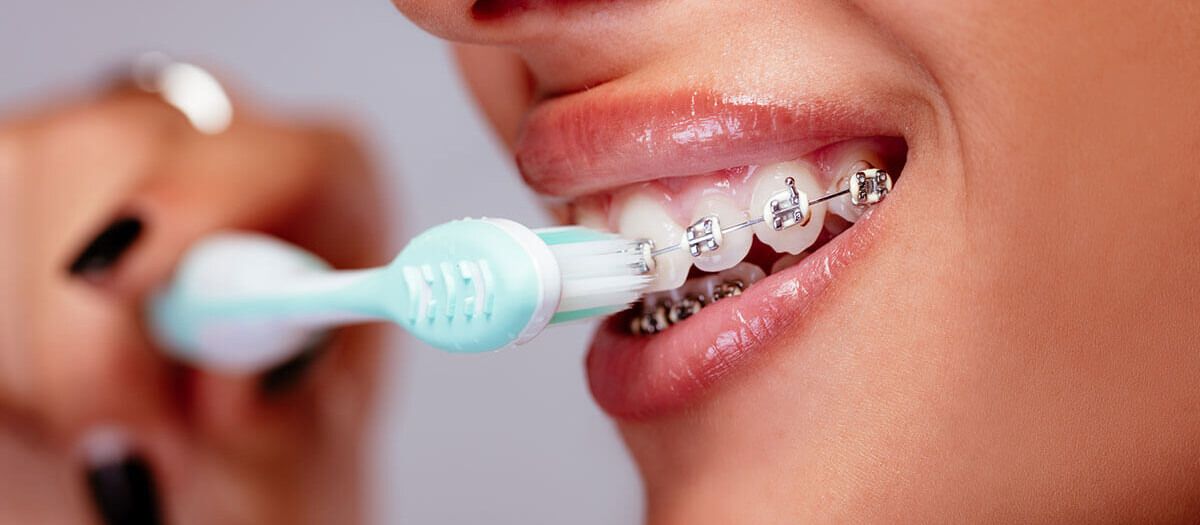Comprehensive Guide to Orthodontics Treatments for Remedying Oral Imbalances
In the realm of orthodontics, the journey to achieving a completely straightened smile includes a myriad of procedures customized to correct oral misalignments. From traditional braces to unseen aligners and even surgical alternatives, the area of orthodontics uses an array of options to resolve differing levels of dental abnormalities. Recognizing the intricacies of each procedure, including their systems, benefits, and potential drawbacks, is vital in making informed decisions regarding one's orthodontic therapy. As we navigate via the thorough guide to orthodontic treatments for correcting dental imbalances, the complex information of each technique will unravel, clarifying the path toward a useful and harmonious oral placement.
Orthodontic Procedures Overview

In addition to typical dental braces and clear aligners, orthodontists may also advise various other interventions like headgear, palatal expanders, or retainers to deal with certain alignment problems (orthodontics). These procedures are tailored to every person's one-of-a-kind demands and may involve a combination of therapies to accomplish the preferred results. Regular adjustments and surveillance are essential parts of orthodontic treatment to guarantee progress is on track and to make any type of required modifications in the process. By undergoing orthodontic procedures, clients can not just achieve a straighter grin yet also enhance their total dental wellness and function.
Typical Braces: Just How They Function
When considering orthodontic therapies for oral misalignments, typical dental braces stand out as a tried and true method for correcting teeth placing. Traditional braces are composed of brackets, cables, and bands that work with each other to apply continuous pressure on the teeth, slowly relocating them right into the preferred alignment.
One secret facet of just how typical dental braces job is the procedure of bone improvement. As stress is applied to the teeth via the dental braces, the bone surrounding the teeth is improved to support the new tooth positions. This renovation is important for the lasting security of the corrected positioning. Individuals will require regular changes at the orthodontist's office to ensure the dental braces remain to apply the correct stress for efficient teeth motion.
Invisible Aligners: Pros and Disadvantages
These clear, personalized trays are essentially undetectable when used, making them an appealing option for people looking for an extra cosmetically pleasing orthodontic treatment. Individuals can remove the aligners before eating or cleaning their teeth, reducing the threat of food obtaining stuck in the home appliance and streamlining the cleaning process.

Surgical Orthodontic Options
Surgical interventions in orthodontics existing practical choices for attending to complex oral imbalances that may not be efficiently resolved through conventional orthodontic treatments. While conventional braces and undetectable aligners can deal with numerous orthodontic concerns, specific cases need surgical treatment to achieve optimum results. Surgical orthodontic options find here are usually suggested for extreme malocclusions, significant jaw disparities, and situations where the underlying bone structure requires alteration to attain appropriate alignment.
One common surgical orthodontic treatment is orthognathic surgery, which entails rearranging the jaws to fix useful problems such as problem eating or speaking. This surgical procedure is usually done in cooperation with an orthodontist who assists straighten the teeth prior to and after the treatment. Surgical orthodontics may also entail procedures to subject influenced teeth, eliminate excess gum tissue, or reshape the jawbone to develop a more unified face profile.
Before taking into consideration surgical orthodontic choices, patients go through a detailed assessment to establish the need and potential advantages visit the website of such treatments. cumming orthodontics. While surgical procedure may appear overwhelming, it can dramatically enhance both the feature and aesthetic appeals of the smile in situations where conventional orthodontic therapies fail
Retainers and Post-Treatment Care

Failing to conform with post-treatment treatment directions can result in relapse, where the teeth progressively relocate back in the direction of their initial placements. Consistent retainer wear, great dental hygiene, and routine dental exams are crucial for keeping the results accomplished through orthodontic surgical click over here now treatment and making sure the long-term security of the dealt with dental alignment.
Conclusion
In final thought, orthodontic treatments provide different choices for dealing with dental imbalances. Surgical orthodontic options are offered for much more extreme misalignments. In general, orthodontic procedures can efficiently improve oral health and wellness and aesthetic look.
As we browse with the extensive guide to orthodontic procedures for correcting dental misalignments, the detailed details of each method will certainly unravel, losing light on the path toward a harmonious and functional oral positioning. - orthodontics
One of the most usual orthodontic treatments is the usage of braces, which consist of steel brackets and wires that apply mild stress to progressively change teeth right into the desired position.When thinking about orthodontic therapies for oral misalignments, standard dental braces stand out as a time-tested method for remedying teeth positioning. In addition, invisible aligners might not be appropriate for complicated orthodontic issues that call for more substantial teeth motion, as they are generally recommended for mild to moderate situations. Retainers are personalized orthodontic tools developed to hold teeth in their dealt with settings after the conclusion of orthodontic treatment.
Comments on “Your Guide to Cumming Invisalign: Straightening Teeth with Style and Comfort”